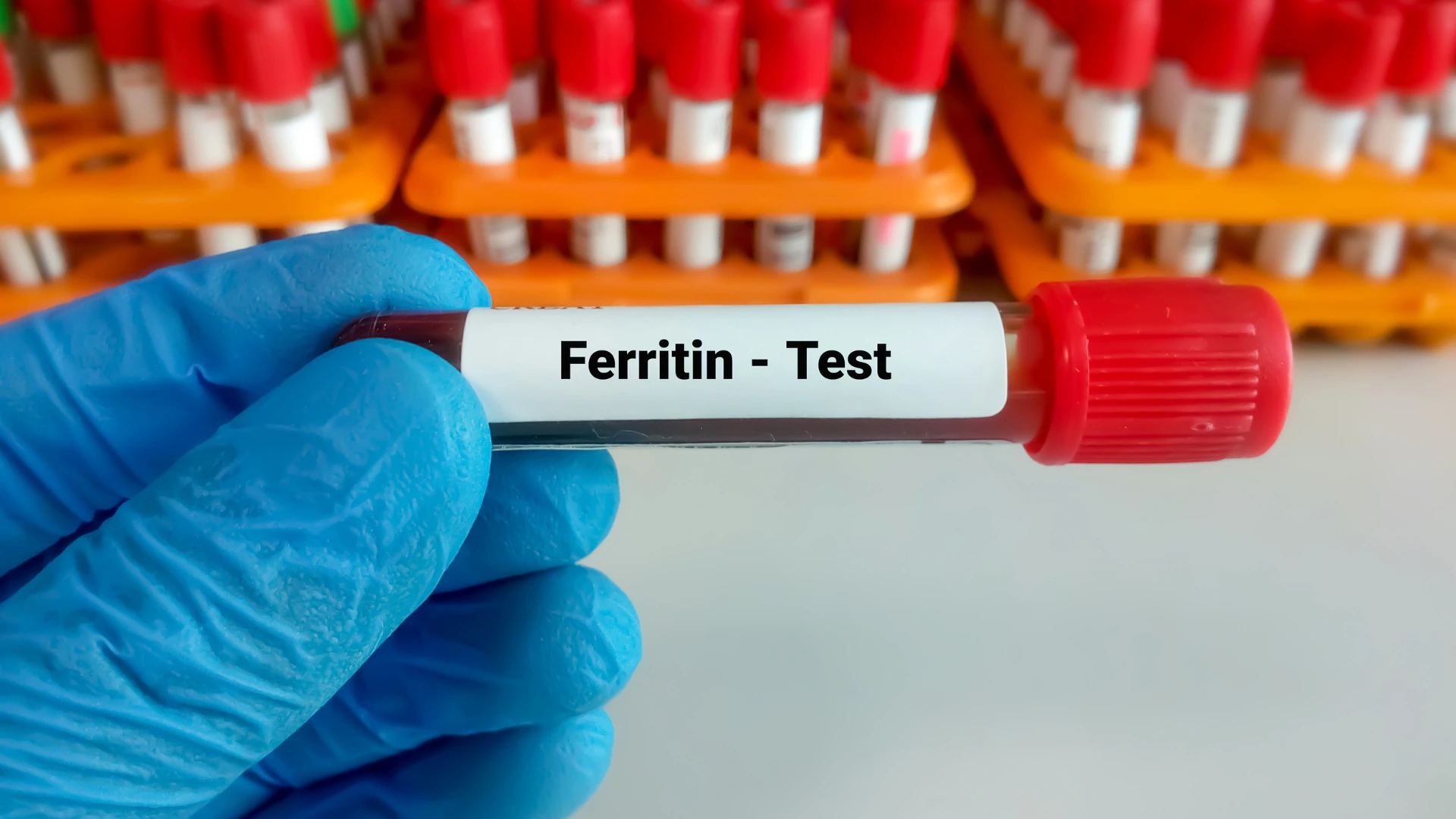
The Ferritin test measures the amount of ferritin, a protein that stores iron in your body. This test provides valuable insights into your iron levels and is crucial for diagnosing and managing conditions like iron deficiency anemia or iron overload disorders.
What Is Ferritin? 🔍
Ferritin is the primary storage form of iron in your body. It releases iron when needed for essential functions like producing hemoglobin, which helps red blood cells transport oxygen. Ferritin levels in the blood reflect the total amount of stored iron, making it a reliable marker of your body’s iron reserves.
Why Is the Ferritin Test Important? 🤔
Doctors recommend this test for several reasons:
What Can the Test Reveal? 👀
Ferritin results are often analyzed alongside Serum Iron and Total Iron-Binding Capacity (TIBC) for a comprehensive picture of your iron metabolism.
A Vital Test for Iron Management 💡
The Ferritin test is a quick, non-invasive tool for assessing your body’s iron stores and diagnosing related conditions. By detecting imbalances early, it helps guide effective treatment and supports your overall health and well-being.
Take control of your iron levels—book your appointment today for a Ferritin test.
DISCLAIMER: The information presented on this page has been intentionally condensed and simplified to make it accessible and easier to understand for the general audience. Its purpose is solely to provide basic awareness and education on the topic discussed. It is important to note that this content is not exhaustive and does not replace or serve as a substitute for professional medical advice, diagnosis, or treatment. Readers are strongly advised to seek consultations with qualified healthcare professionals or specialists for accurate assessment, personalized guidance, and appropriate medical care. Relying solely on the information provided here, without professional oversight, may lead to misunderstandings or inadequate treatment.
Privacy policy
Copyright ©2025 Klinika Kajo. Designed By Vizional